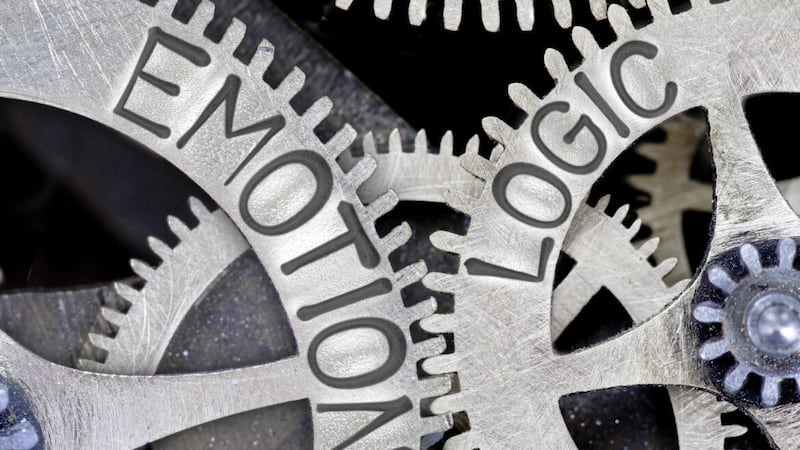THERE’S a really interesting book written by Dave McRaney (also a podcast) called ‘You are not so smart’ in which it shines a light on all the little (and large) ways you may be unaware of how you are being influenced in your actions and behaviour, even by your own subconscious.
One of the more interesting areas they covered was around making logical versus emotional decisions. We all like to think that as titans (ahem) of business, we are able to take off whatever De Bono hat we’ve been wearing and use cold hard business logic to make decisions. The reality however is that emotion plays a huge part in the choices we make.
McRaney used the example of a person winning a million dollars in a lottery. So far, so good. There is a catch however: To keep the money they need to share a portion of the winnings with a stranger. They get to make a one time offer of an amount. If the stranger accepts, both keep their money, if the stranger rejects it, neither keep any of the money.
Interestingly, when tested, anything less than 20 per cent was typically rejected as an offer. So, to keep the lottery money (or at least part of it) you would need to be offering $200,000 or more to a stranger. That sounds crazy right? It’s your money, you won it.
If you feed this data into a computer and ask it to make the decision instead of a ‘stranger’, it will accept any amount offered. One dollar is better than no dollars. That’s more that you had before you were made the offer. Basic logic. That’s how a computer processes things.
In this scenario, you don’t get to negotiate, it’s a one-time deal: accept or don’t accept. Therefore, again, the most logical thing to do is take the money, whatever amount that is, and walk away with more than you started.
As McRaney says though, humans are not machines “they are having to deal with 3 million years of evolution” and that includes emotions.
McRaney argues that the offer is actually perceived by the ‘strangers’ as a measure of status, of how much they are respected by the lottery winner. A measure of their worth. And status, or more accurately, perceived status (as these are two people interacting have no prior relationship, background history or knowledge of each other to use as indicators) is directly tied to emotion.
In the experiment anything less than 20 per cent is typically perceived as somehow disrespectful. The strangers would rather take nothing (and teach the ‘winner’ a lesson) than be thought of as weak or of low(er) status.
Add in the fact that our society (and particularly social media) conditions everyone to life being a zero-sum game, where you must win and the other person must lose, you can see how folks are nudged more and more away from compromise or even rational thought.
Emotion driving decisions is why you don’t see adverts for holidays featuring rows of facts and figures; pounds, pence and pricing repayment options on screen or people with a calculator looking through their bank balance and bills, trying to figure out how or if they could pay for a trip abroad. Instead, you see pictures of tanned, cool looking folks, relaxing in sunny weather, laughing, drinking, enjoying themselves, without a care in the world. You deserve this too, its saying. It pokes your emotion, not your logic.
Left unchecked it seems that while logic perhaps acts as an influencer, guiding you in a certain direction, emotion tends to be the predominant force in terms of decision making these days.
Once you realise that however you can start to apply some discipline to your thinking.
You can actively begin to disengage the emotion from the situation and start thinking in processes: inputs, outputs, gains, losses, risk, reward and results.
In the workplace it’s important to pause and consider how much emotion has played a part in whatever decision you are about to make, especially if it’s after a heated discussion or argument.
Take time out to reflect and try to identify which of your buttons have been pushed and then considering the end goal. List pro’s and con’s. Think on what is it you are trying to achieve and if that is better served by allowing a small bit of ego to be bruised rather than blowing up the entire situation. If you can get a second opinion from someone detached from the situation even better.
That’s not to say all business decisions need or should have zero emotion. There is definitely a time and a place, it just should not be in the absence of (or totally displacing) some form of logical thinking to balance it.
Realistically, as De Bono himself is credited as saying “Logic will never change emotion or perception”.
But if we understand and acknowledge this in advance of making decisions, we maybe stand a better chance of draining the right amount of heat from how we make our decisions and complementing it with cool headed analysis.
:: Barry Shannon is head of HR at STATSports








